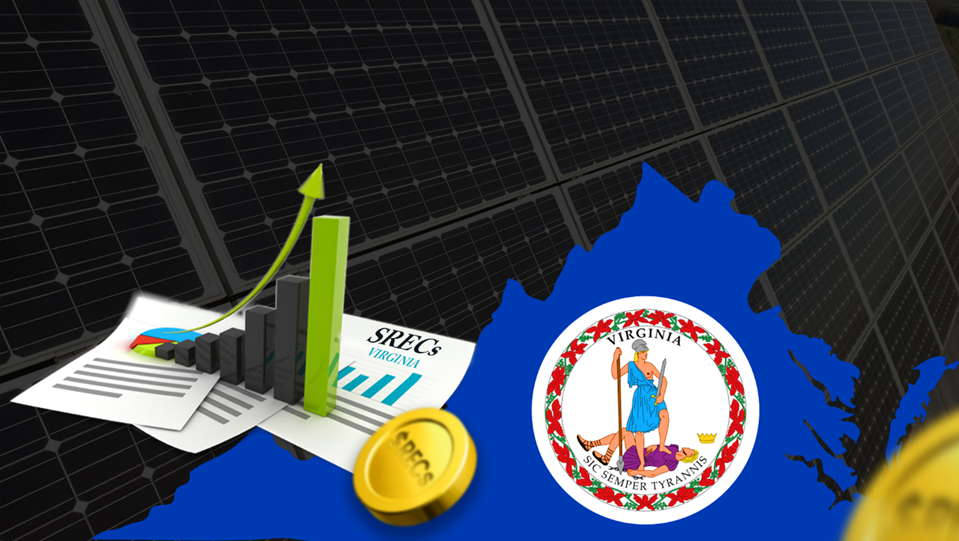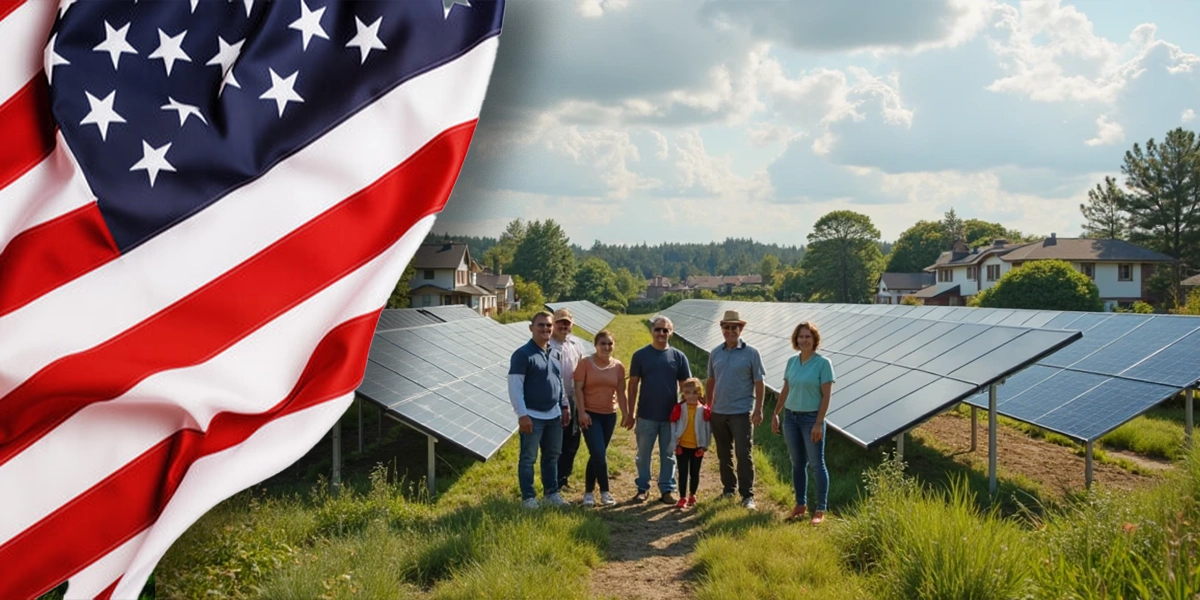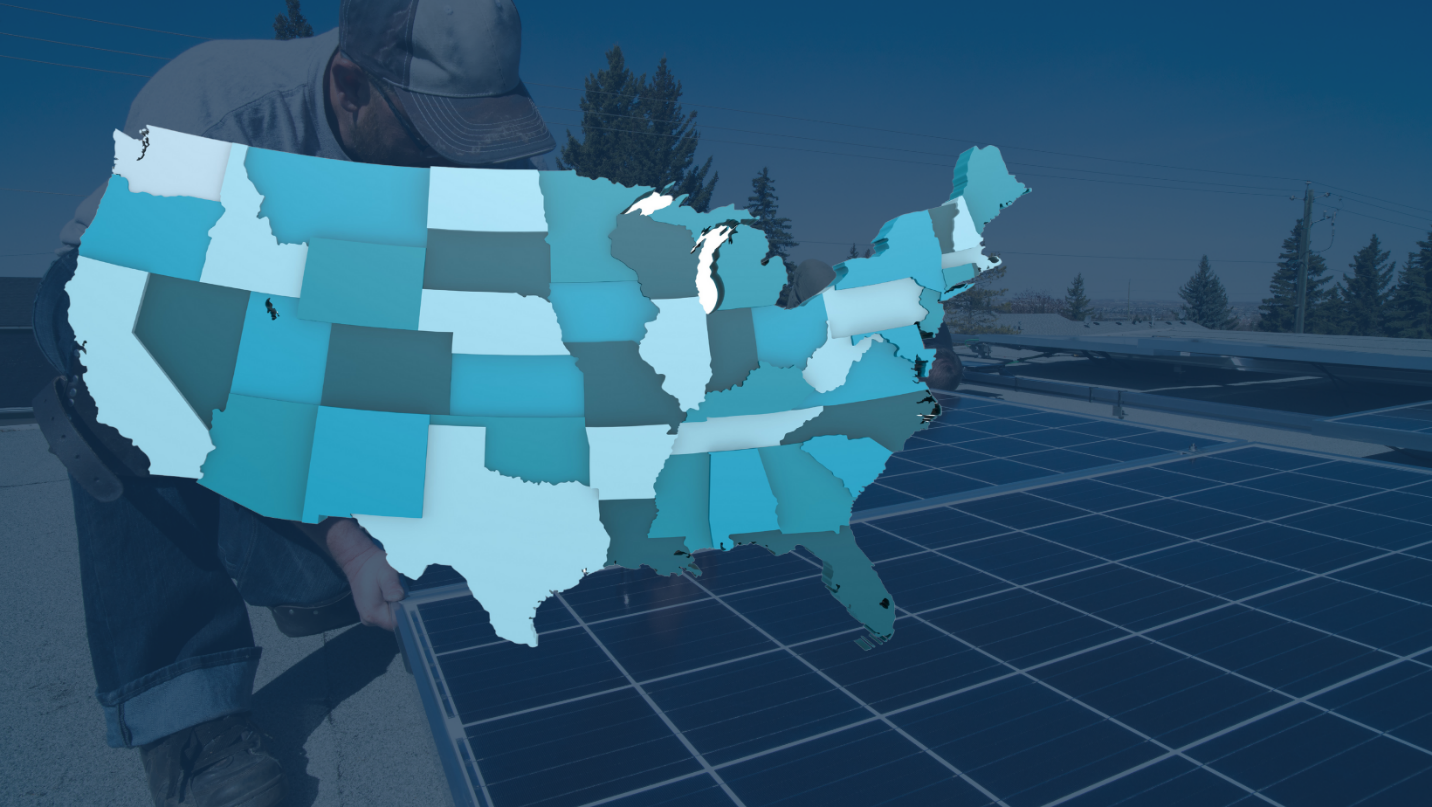- Updated On: May 22, 2025
Installing Solar Panels in Virginia: Important Considerations for a Homeowner
Virginia ranks 9th among the US states experiencing a phenomenal growth in solar installations. Both residential and commercial property owners are switching to clean energy to reduce their grid dependency and cut down high energy bills. The state also provides some of the most attractive solar incentive programs and rebates to encourage more residents for installing solar panels in Virginia. Besides the 30% federal tax credit, there are VA SRECs programs and net metering as well, which allow solar owners to minimize high upfront costs and profit from their surplus energy generation. Since electricity and gas rates are on the rise, you can gain the complete benefit of approximately 215 sunny days and solar incentives by installing solar in VA.

Why is Virginia a good state for solar installation?
Virginia is ranked among the top 10 best states for solar. There is an average of 4.25-4.75 peak sun hours per day in the state, making it a good geographical location to have solar installed. Another reason to switch to solar power in the state is increasing electricity prices. The average current electric rates in Virginia are approximately 14¢/kilowatt-hour (kWh). A Virginia homeowner is currently getting around $188 monthly electric bill on average. In addition to sky-high electricity bills, the citizens are also experiencing rising and extended power outages due to extreme weather and grid loads. The Energy Information Administration has stated that there was an average of 10 hours of power outages in 2023-2024 in Virginia and even longer in other places.
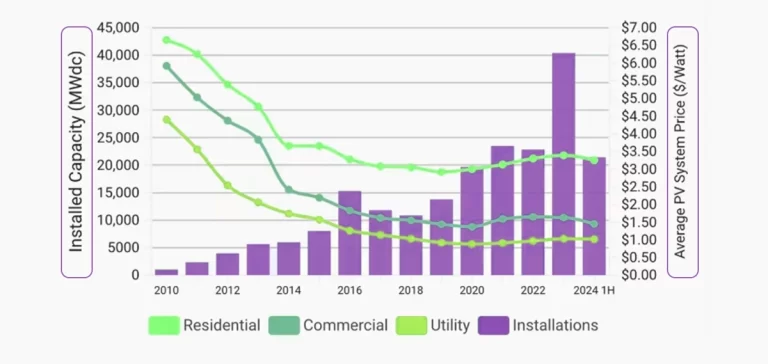
At the same time, if you invest in solar in Virginia, the state offers the best solar rebates and tax credits to lower the cost of solar installation, thus making it a suitable place to install solar and battery storage systems. In addition, many solar programs are available, which not only help you save money on your energy bill but also earn you money with your home solar panel system in Virginia.
How expensive is it to install solar panels in Virginia, and what determines the cost?
The upfront cost of installing solar in VA varies according to your home energy requirements, solar system size, type of solar installation like ground mount/ rooftop, your utility rates and available local solar rebates. However, if you buy a home solar system, either with cash or through a solar loan, you become qualified for 30% solar investment tax credit. Also, you can earn credits by sending excess power to the grid with net metering programs. Furthermore, you can sell your solar credits through VA SREC program for high ROI and shorter solar payback period. And, if you haven’t much cash to buy solar panels or take a solar loan, you can still use solar power and lower your energy bills without paying any upfront cost with financing options like solar leasing or and power purchase agreements (PPA). You only require monthly payments as per your lease agreement.

It is better to consult with a certified local solar company like Solar SME for suitable solar financing options for your needs.
Best Solar Incentives in Virginia
Federal Solar Tax Credit:
Similar to other states, Virginians who own solar systems can take advantage of a 30% federal tax credit, which greatly reduces the initial expense of solar installation. For instance, if you buy a residential PV system priced at $20,000, applying the 30% tax credit will bring the final cost down to $14,000. Learn more about the how federal solar tax credit work.
Net Metering:
Virginia is one of the states that provide net energy metering programs, allowing residents to send surplus solar energy back to the grid and earn credits. These credits can be used to reduce energy costs when drawing power from the grid at night or on overcast days. Discover more about how net energy metering in VA.
Solar Renewable Energy Credits:
In Virginia, individuals who own solar systems have the opportunity to sell solar renewable energy credits (SRECs) for every 1,000-kWh generated by their panels. Utilities may purchase VA SRECs to meet their renewable energy obligations, which highlight the benefits of solar power. The value of SRECs in the Virginia market varies based on supply and demand. Additionally, you can trade them through platforms such as SRECTrade. However, if the solar panels are leased, it is likely that the company that owns them will obtain the SRECs.
Property Tax Exemptions:
Installing solar panels boosts your home value by up to 4%. The good news is that solar panels are exempt from property taxes. It means you won’t pay high property taxes just because of your solar system installed on your house.
How do utilities work in Virginia?
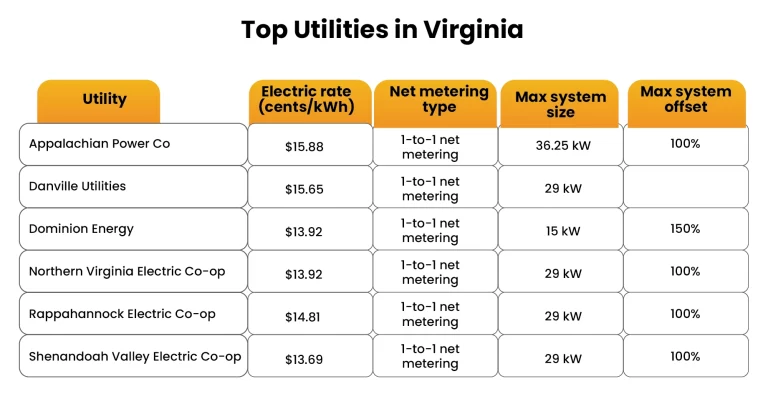
Is it worth installing solar panels in Virginia?
Investing in solar energy is definitely beneficial in Virginia, as it can help you cut your high electricity expenses by as much as 95% and reduce your reliance on the power grid. If the initial investment is a primary concern, there are adaptable financing solutions such as solar loans with 0% APR. Additionally, purchasing solar energy systems allows you to decrease your upfront expenditures through tax credits and incentives available in Virginia.
Furthermore, for a higher return on investment and a shorter payback period, you can get benefits by selling SRECs and available net metering options. To maximize the benefits of your solar energy system, it’s crucial to select the appropriate size, type, and equipment that align with your energy requirements. Only a reputable solar installer can assist you in creating a tailored solar solution, so be sure to choose your solar panel installation company with thorough research.
Solar SME is the best solar company near you in Virginia, offering top-rated solar panels and accessories at an affordable price. Our solar installation process is according to the NEC solar code 2023, as we prioritize system safety and our customers’ peace of mind. Try our smart solar calculator now at no cost to get an instant estimate of your solar savings in Virginia.
Related Articles:
Solar Renewable Energy Certificates (SRECs) have become a vital source for encouraging the adoption of solar energy as demand for renewable energy sources rises.
Community solar is revolutionizing the shift to solar power. These programs allow people to utilize clean power from solar farms without any upfront cost or solar installation expenses. Explore which states are offering these programs.
Every year, more people choose solar panels for their homes and businesses. Compared to the first quarter of 2022, the number of residential solar systems installed increased by 30% in 2023.

